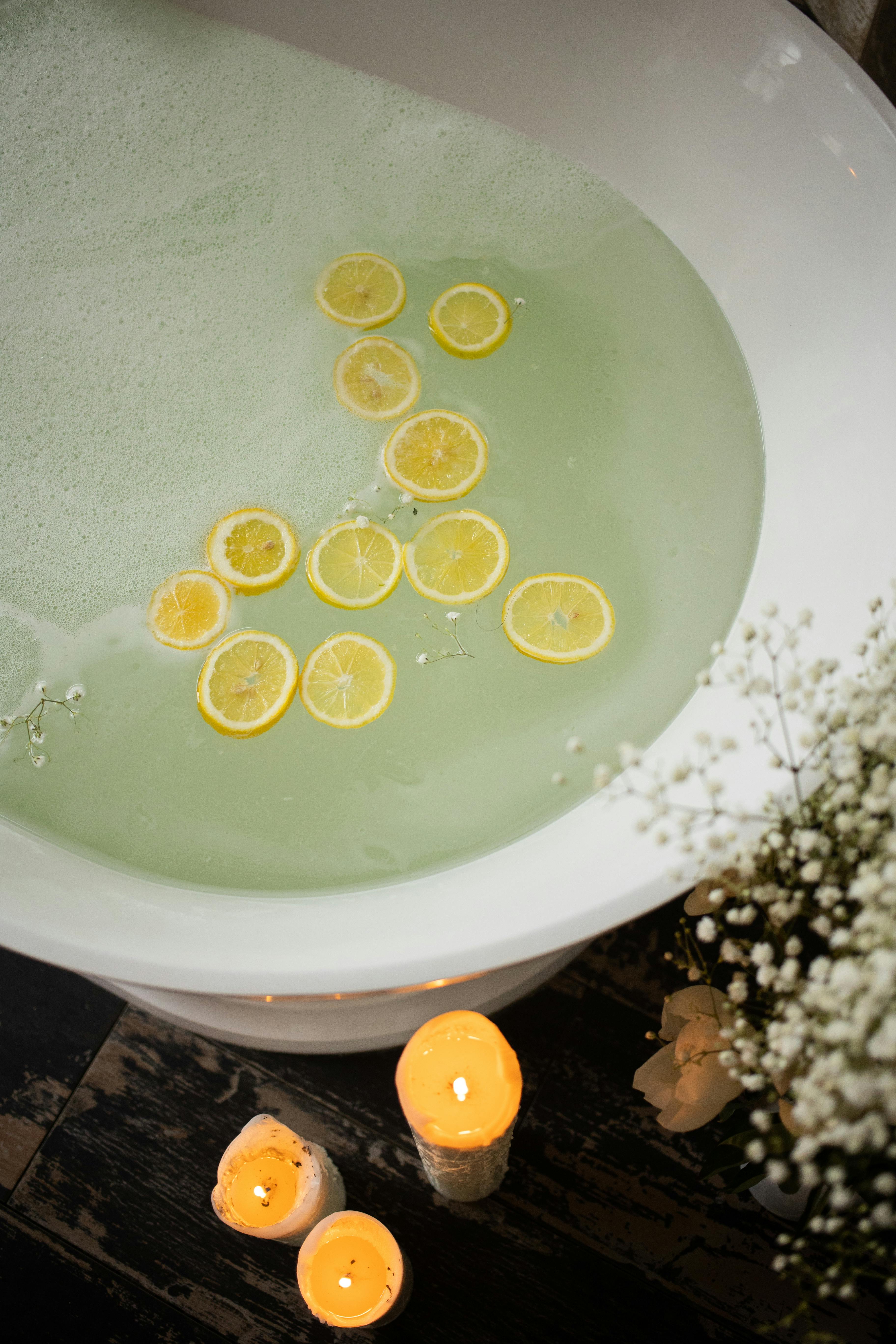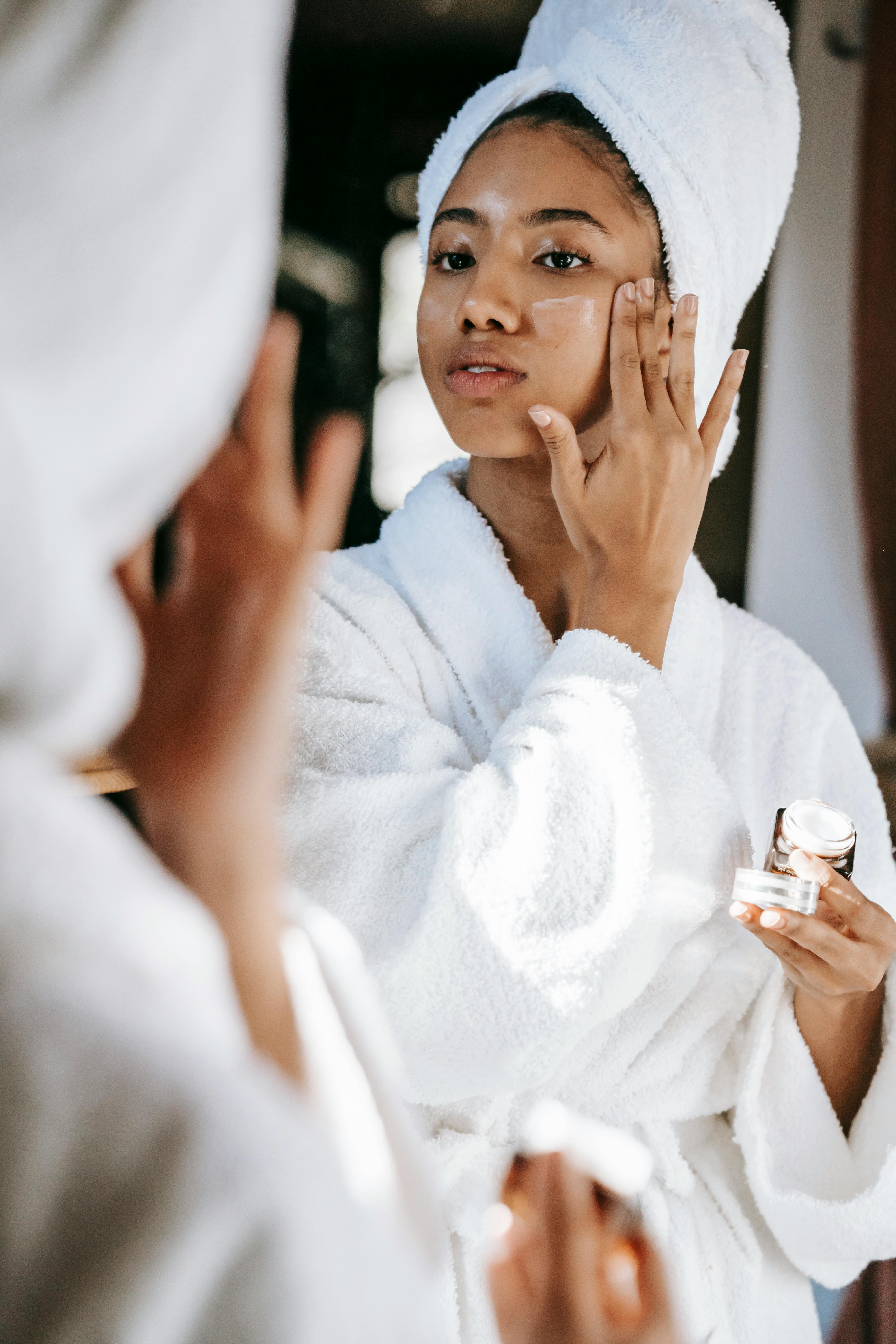Views: 3
Hey there! Dealing with acne can be frustrating, but don’t worry. We’ve got you covered. In this article, we’ll share the best skincare routine specifically designed for acne-prone skin. Acne can be caused by various factors like excess sebum production, clogged pores, or bacteria, but with the right approach, you can significantly improve your skin’s condition. So let’s dive into this skincare routine and say hello to clearer, healthier skin!

Cleansing
Choosing the right cleanser
When it comes to cleansing acne-prone skin, choosing the right cleanser is crucial. Look for a gentle cleanser that is formulated specifically for acne-prone skin. Avoid cleansers that contain harsh ingredients such as sulfates, alcohol, or fragrances, as these can strip the skin of its natural oils and cause irritation. Opt for cleansers with ingredients like salicylic acid or benzoyl peroxide, which can help control acne and reduce inflammation.
Using gentle cleansing techniques
When cleansing your acne-prone skin, it’s important to use gentle techniques to avoid further irritation. Start by wetting your face with lukewarm water, then apply a small amount of cleanser to your fingertips. Gently massage the cleanser onto your skin using circular motions, focusing on areas prone to breakouts. Avoid scrubbing or using harsh exfoliants, as these can aggravate your acne. After cleansing, rinse thoroughly with lukewarm water and pat your skin dry with a clean towel.
Avoiding harsh ingredients
While some ingredients can be beneficial for acne-prone skin, others can be harsh and worsen your breakouts. Avoid cleansers that contain sulfates, as these can be drying and irritating to the skin. Similarly, alcohol-based cleansers can strip the skin of its natural oils, leading to dryness and inflammation. Fragrances can also be irritating, so it’s best to choose fragrance-free cleansers. Instead, opt for cleansers with ingredients like salicylic acid or benzoyl peroxide, which can help control acne without causing unnecessary dryness or irritation.
Exfoliation
The importance of exfoliation
Exfoliation is an essential step in any skincare routine, especially for acne-prone skin. It helps to remove dead skin cells, unclog pores, and improve the overall texture of your skin. By removing these impurities, exfoliation can also help prevent future breakouts and promote a clearer complexion. However, it’s important to exfoliate gently and avoid overdoing it, as excessive exfoliation can lead to irritation and inflammation.
Types of exfoliators for acne-prone skin
When it comes to exfoliating acne-prone skin, it’s best to choose gentle exfoliators that won’t cause further irritation. Look for chemical exfoliators that contain ingredients like alpha-hydroxy acids (AHAs) or beta-hydroxy acids (BHAs). AHAs, such as glycolic acid or lactic acid, work by dissolving the bonds between dead skin cells, while BHAs, such as salicylic acid, penetrate the pores and help unclog them. These types of exfoliators are effective in promoting cell turnover and keeping your skin clear.
Frequency of exfoliation
The frequency of exfoliation will depend on your skin type and tolerance. For acne-prone skin, it’s generally recommended to exfoliate no more than two to three times a week. This allows your skin enough time to recover and reduces the risk of over-exfoliation. However, if you notice any signs of excessive dryness or irritation, it’s important to adjust the frequency accordingly and give your skin a break from exfoliation. Pay attention to how your skin reacts and adjust your exfoliation routine accordingly.
Toning
Choosing an appropriate toner
Choosing the right toner for acne-prone skin is essential to help balance your skin’s pH levels and control excess oil production. Look for toners that are alcohol-free and contain gentle ingredients such as witch hazel or tea tree oil. These ingredients have anti-inflammatory properties and can help soothe acne-prone skin without causing dryness or irritation. Avoid toners that contain harsh ingredients like alcohol or fragrances, as they can strip the skin of its natural oils and disrupt its balance.
Benefits of using a toner for acne-prone skin
Using a toner can provide several benefits for acne-prone skin. Firstly, it helps to remove any remaining impurities after cleansing, ensuring that your pores are clean and free from excess oil and debris. Secondly, a toner can help to balance the pH levels of your skin, which is important for maintaining a healthy skin barrier. Lastly, some toners contain ingredients that have anti-inflammatory or antibacterial properties, which can help to reduce acne and prevent further breakouts.
Applying toner effectively
To apply toner effectively, start by cleansing your face and patting your skin dry. Pour a small amount of toner onto a cotton pad and gently swipe it across your face, focusing on areas prone to acne. Avoid rubbing or pulling on your skin, as this can cause irritation. Allow the toner to absorb into your skin before moving on to the next step in your skincare routine. Remember to follow up with a moisturizer to keep your skin hydrated and protected.
Treatment Products
Spot treatments for acne
Spot treatments can be a lifesaver for those pesky acne breakouts that need a little extra help. Look for spot treatments that contain ingredients like benzoyl peroxide or salicylic acid, which are effective in targeting acne-causing bacteria and reducing inflammation. Apply a small amount of the spot treatment directly onto the affected area and leave it on overnight. The spot treatment will work to reduce redness and swelling, helping to speed up the healing process and minimize the appearance of the blemish.
Use of serums for acne-prone skin
Serums can also be a beneficial addition to your skincare routine for acne-prone skin. Look for serums that are specifically formulated for acne-prone skin and contain ingredients like niacinamide or vitamin C, which can help control sebum production and reduce inflammation. These serums can help to improve the overall appearance of your skin and promote a clearer complexion. Apply a small amount of serum onto clean skin and gently massage it in using upward motions. Allow the serum to absorb fully before applying moisturizer.
Incorporating acne treatments into your routine
When incorporating acne treatments into your skincare routine, it’s important to start slowly and gradually increase the frequency or concentration of the treatment. Begin by using the treatment product once every few days to allow your skin to adjust. If your skin tolerates it well, you can then increase the frequency to once daily. If you experience any signs of irritation or dryness, reduce the frequency or concentration of the treatment. It’s also important to follow up with a moisturizer to keep your skin hydrated and protected.

Moisturizing
Finding the right moisturizer
Finding the right moisturizer for acne-prone skin is crucial to keep your skin hydrated without clogging your pores. Look for oil-free or non-comedogenic moisturizers that are specifically formulated for acne-prone skin. These moisturizers are lightweight and won’t clog your pores or worsen your breakouts. Additionally, look for moisturizers that contain ingredients like hyaluronic acid or ceramides, which can help to hydrate and repair your skin barrier, promoting a healthier complexion.
The importance of moisturizing acne-prone skin
Contrary to popular belief, moisturizing is essential for acne-prone skin. It helps to maintain the balance of your skin’s natural oils, preventing overproduction of sebum that can lead to breakouts. Moisturizing also helps to soothe and hydrate your skin, reducing inflammation and promoting healing. By keeping your skin adequately moisturized, you can improve its overall health and resilience, leading to a clearer and healthier complexion.
Considerations for oily or combination skin
If you have oily or combination skin, it’s important to choose a moisturizer that is lightweight and oil-free. Look for gel or lotion formulas that absorb easily into the skin and won’t leave a greasy or heavy feeling. Avoid thick or heavy creams, as they can clog your pores and lead to breakouts. Additionally, consider using mattifying moisturizers that contain ingredients like niacinamide or tea tree oil, which can help control excess oil production and keep your skin looking shine-free throughout the day.
Sun Protection
Selecting a suitable sunscreen
Sunscreen is a crucial step in any skincare routine, especially for acne-prone skin. Look for sunscreens that are oil-free and non-comedogenic, as these won’t clog your pores or worsen your breakouts. Choose a broad-spectrum sunscreen with an SPF of 30 or higher to ensure that your skin is protected from both UVA and UVB rays. Additionally, opt for sunscreens that are labeled “water-resistant” if you’ll be sweating or swimming, as these offer better protection.
The role of sun protection in acne management
Sun protection plays a significant role in managing acne-prone skin. Unprotected sun exposure can lead to inflammation and irritation, which can worsen acne breakouts. Additionally, some acne medications or treatments can increase your skin’s sensitivity to the sun, making it even more important to protect your skin. By wearing sunscreen daily, you can reduce the risk of sunburn, premature aging, and further aggravation of your acne.
Applying sunscreen properly
To apply sunscreen properly, start by taking a generous amount and applying it evenly onto your face, neck, and any other exposed areas. Be sure to cover your entire face, including the hairline, ears, and neck. Massage the sunscreen into your skin using upward motions until it is fully absorbed. Allow the sunscreen to dry before applying any makeup or other skincare products. Remember to reapply sunscreen every two hours or more frequently if you’re sweating or swimming.

Makeup
Choosing non-comedogenic products
When it comes to makeup for acne-prone skin, it’s important to choose products that are labeled as non-comedogenic. Non-comedogenic products are specifically formulated to not clog your pores, reducing the risk of breakouts. Look for foundations, concealers, and powders that are oil-free and won’t contribute to further oiliness or acne. Avoid heavy or greasy products, as they can trap bacteria and lead to breakouts. Additionally, consider using mineral makeup, as it tends to be lighter and less likely to cause irritation.
Tips for applying makeup on acne-prone skin
To apply makeup on acne-prone skin effectively, start with a clean and moisturized face. Apply a small amount of primer to create a smooth canvas and help your makeup last longer. Use a small brush or a damp beauty sponge to apply foundation or concealer only where needed, focusing on areas with active breakouts. Avoid applying thick layers of product, as this can clog your pores and make your acne worse. Set your makeup with a light dusting of powder to control shine and extend its wear.
Removing makeup effectively
Removing makeup effectively is essential for acne-prone skin to prevent clogged pores and breakouts. Start by using a gentle makeup remover or micellar water to dissolve and lift away your makeup. Follow up with a gentle cleanser to remove any remaining traces of makeup and cleanse your skin thoroughly. Avoid using harsh or abrasive cleansers, as they can strip your skin of its natural oils and cause dryness or irritation. Finally, remember to moisturize your skin after removing makeup to keep it hydrated and protected.
Diet and Lifestyle
Effects of diet on acne
While there is no direct causation between diet and acne, certain foods may exacerbate breakouts in some individuals. It’s important to maintain a balanced diet and avoid foods that are known to trigger acne flare-ups. Some common culprits include high glycemic foods, dairy products, and foods rich in saturated fats. Instead, focus on consuming a diet rich in fruits, vegetables, lean proteins, and whole grains. Drinking plenty of water and reducing your intake of sugary drinks can also help support clear and healthy skin.
Managing stress and its impact on acne
Stress can have a significant impact on acne-prone skin, as it can stimulate the production of stress hormones that can exacerbate breakouts. To manage stress, incorporate stress-relieving techniques into your daily routine, such as practicing yoga or meditation, engaging in regular exercise, and getting enough sleep. Additionally, make time for activities that you enjoy and prioritize self-care. By managing stress effectively, you can reduce its impact on your skin and promote a clearer complexion.
Maintaining a healthy lifestyle for clearer skin
Maintaining a healthy lifestyle is essential for promoting clear and healthy skin. In addition to managing stress and eating a balanced diet, there are other lifestyle factors that can impact your skin. Avoid smoking, as it can increase inflammation and impede the healing process. Get regular physical activity to improve blood circulation and support healthy skin. Finally, ensure that you’re getting enough quality sleep, as sleep deprivation can weaken your immune system and lead to increased inflammation and breakouts.
Professional Treatments
When to seek professional help for acne-prone skin
If you’ve been struggling with persistent or severe acne despite following a consistent skincare routine, it may be time to seek professional help. A dermatologist can assess your skin condition and recommend appropriate treatments based on your specific needs. They can also prescribe medications or topical treatments that may be more effective in managing your acne. Don’t hesitate to seek professional help if your acne is causing significant distress or impacting your quality of life.
Types of professional treatments available
There are several professional treatments available for acne-prone skin, depending on the severity and type of acne. Some common treatments include topical retinoids, oral antibiotics, chemical peels, and laser therapy. Topical retinoids help to unclog pores and promote cell turnover, while oral antibiotics can help reduce inflammation and control acne-causing bacteria. Chemical peels and laser therapy can help to exfoliate the skin and reduce the appearance of acne scars. Your dermatologist will recommend the most suitable treatment options based on your individual needs.
Precautions and considerations for professional treatments
Before undergoing any professional treatments, it’s important to discuss any pre-existing medical conditions or allergies with your dermatologist. They will assess your overall health and determine the most appropriate treatment plan. Additionally, it’s important to follow all post-treatment instructions provided by your dermatologist to ensure proper healing and minimize the risk of complications. Some treatments may require multiple sessions or a gradual increase in intensity, so patience and compliance are key to achieving the best results.
Skin Care Tips and Precautions
Avoiding picking or popping acne
While it may be tempting to pick or pop your acne, it’s best to resist the urge. Picking or popping acne can introduce more bacteria into the affected area and increase the risk of infection. It can also cause further inflammation, scarring, and prolong the healing process. Instead, focus on a gentle and consistent skincare routine to manage your acne, and if necessary, seek guidance from a dermatologist for professional treatments.
Keeping your skincare tools and products clean
To prevent the spread of bacteria and minimize the risk of breakouts, it’s important to keep your skincare tools and products clean. Wash your makeup brushes regularly with a gentle cleanser or mild soap. Avoid sharing your skincare tools with others to minimize the risk of contamination. Similarly, keep the openings of your skincare products clean by wiping them regularly with a clean cloth or cotton pad. Proper hygiene and cleanliness can go a long way in maintaining the effectiveness of your skincare routine.
Being consistent with your routine
Consistency is key when it comes to managing acne-prone skin. Stick to a consistent skincare routine and give it time to work. It may take several weeks or even months to notice significant improvements in your skin. Avoid hopping from one product to another too quickly, as this can disrupt your skin’s balance and make it difficult to determine which products are effective. Be patient, follow the instructions provided with your skincare products, and stay consistent with your routine for the best results.
In conclusion, the best skincare routine for acne-prone skin involves choosing the right cleanser, exfoliating gently, using an appropriate toner, incorporating treatment products, moisturizing adequately, protecting your skin from the sun, choosing non-comedogenic makeup, maintaining a healthy diet and lifestyle, considering professional treatments when necessary, and following proper skincare tips and precautions. By following these guidelines and tailoring them to your specific needs, you can achieve clearer and healthier skin. Remember, consistency, patience, and a gentle approach are key to effectively managing acne-prone skin.

